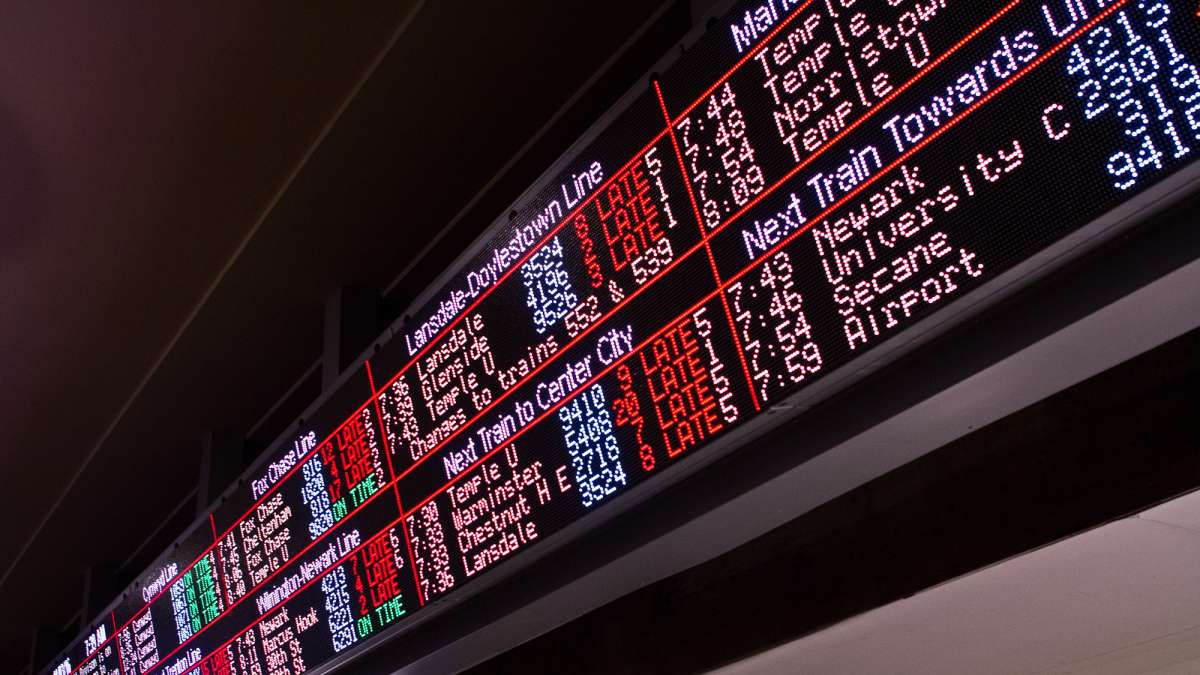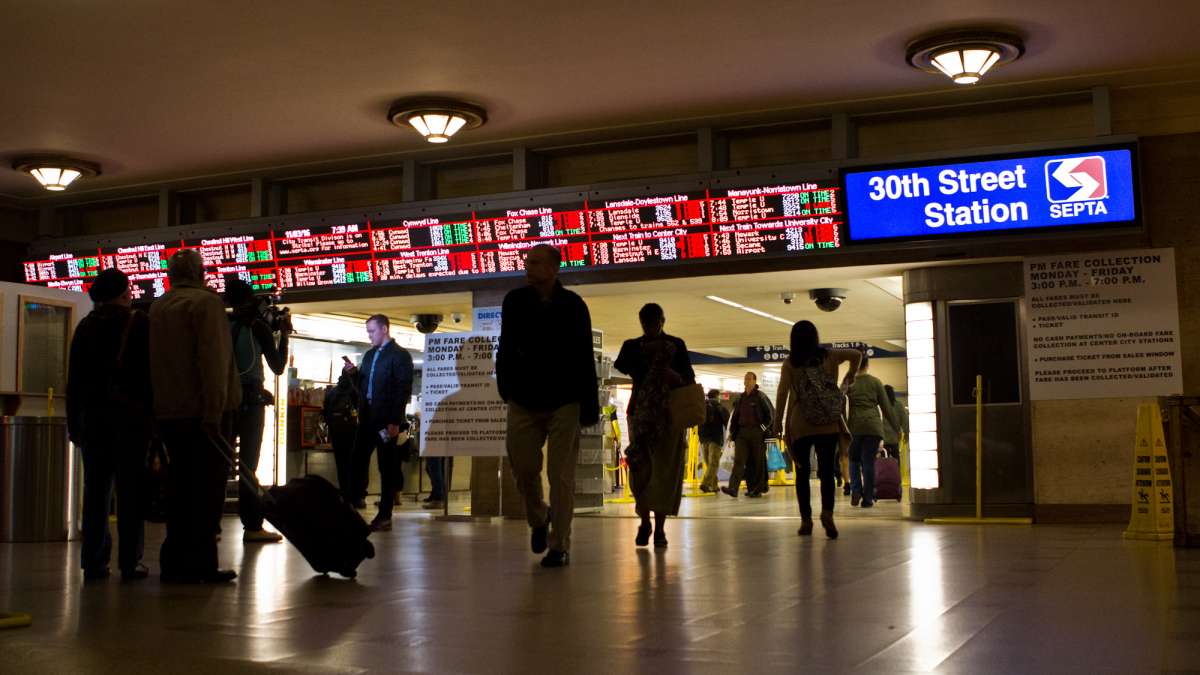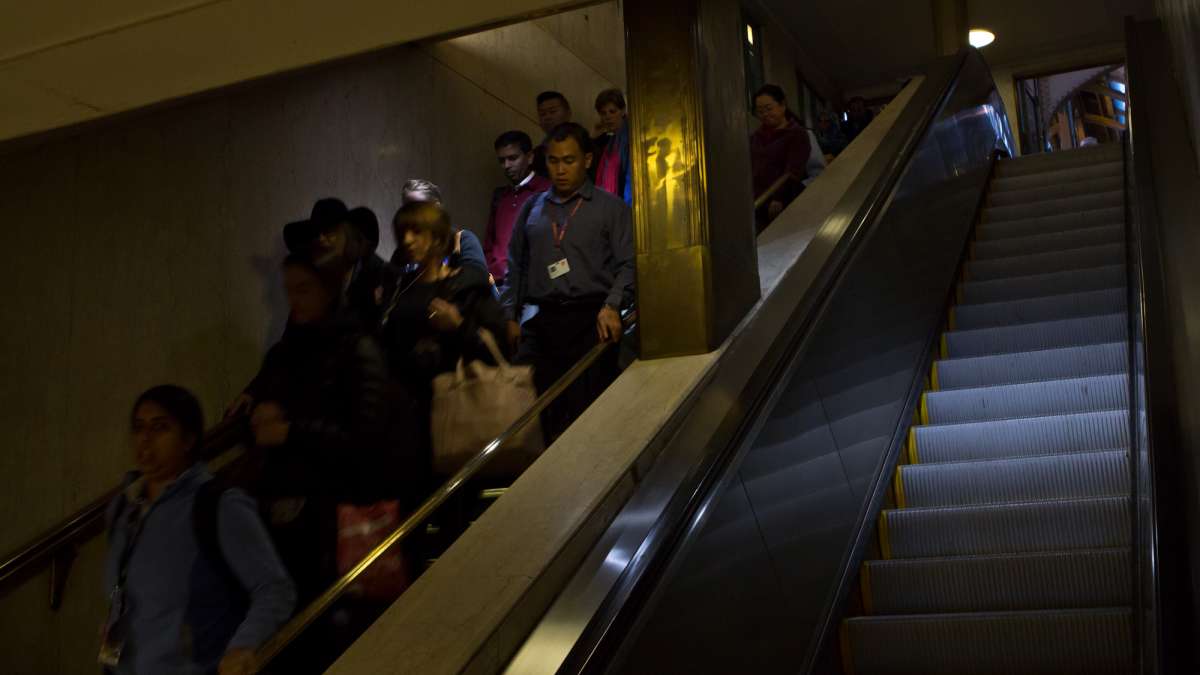SEPTA strike, day three: The latest
An unresolved dispute over pension perks is pushing the SEPTA strike into its third day, dashing any hopes that the work stoppage on the region’s public transit system would be a minor blip in the work week.
That means more highway headaches today, as the commuters who normally take more than 900,000 rides a day on SEPTA’s now-stilled buses, trolleys and subways instead hit the road by car, bicycle and foot.
More than 4,700 workers, represented by the Transport Workers Union Local 234, went on strike early Tuesday, demanding pension reform, health care changes, and improvements on non-economic issues including shift scheduling, break time and other measures that affect driver fatigue. By late Wednesday, though, the main sticking point was pensions. Contract negotiations ended about 2 a.m. this morning, and talks are expected to resume this afternoon at the Sheraton Hotel in Center City.
Things have been slow-going since the strike started, but U.S. Rep. Bob Brady Wednesday night preferred to look at the bright side.
“As long as they’re talking,” the famed Philly deal maker said. “That’s the most important part… when you’re talking you can always get something done.”
Still, as the calendar inches closer to Election Day, some worry the strike could dent voter turnout. SEPTA officials said Wednesday night they will seek an injunction today if the union does not agree to voluntarily suspend the strike for Election Day. To that, TWU Local 234 President Willie Brown said today: “Rather than talking about next week, SEPTA and its board chairman should stop their games and work with us to get a settlement now.”
This strike is workers’ 12th since 1975, making SEPTA the most strike-prone transit agency in the country, according to Forbes. The last SEPTA bus, trolley and subway workers’ strike, in 2009, lasted six days. SEPTA regional rail workers called a one-day strike in 2014 that ended after President Obama intervened. The longest strike involving TWU workers, in 1977, wore on for 44 days.
SEPTA Board Chairman Pasquale T. Deon Sr. vented his frustration in a statement issued late Wednesday.
“Our proposals provide significant financial benefits to the Union for years to come,” Deon said. “I ask the TWU leadership to meaningfully engage in negotiations without delay. Too much is at stake for either side to fail to fully engage in the negotiating process. SEPTA negotiators have been working tirelessly to get a deal done, and we’re asking TWU leadership to do the same – for the sake of their members, and the people who rely on them every day to safely get them where they need to go.”
Brown responded angrily today at Deon’s claims that the union was holding up a deal.
“SEPTA’s bargaining team and high-priced outside lawyers stonewalled contract talks for months prior to the strike,” Brown said. “When the strike was called, they didn’t utter a word for the first 16 hours. Make no mistake, if we had accepted their terms prior to the strike deadline, our members would have taken home less in their paychecks next year than they earn today. TWU 234 has been prepared to bargain day and night. We won’t apologize for trying to maintain quality affordable healthcare for our members and their families. We think our members deserve to have adequate time to go to the bathroom. We find it absurd that simple no-cost reforms that would reduce fatigue, allow our members adequate rest, and likely reduce accidents can be blocked because they want to maintain ‘flexibility.’ … Despite the SEPTA board chairman’s rhetoric, and thanks to the efforts of concerned elected leaders, along with the help of a state mediator, progress was made in the past 36 hours. More needs to be done. We’ve been engaged in give and take. But Deon’s idea of bargaining where he tells the public half-truths about what’s on the table while telling the union to take it or leave it won’t get us across the finish line.”
As the two sides squabbled, commuters continued finding creative ways to get around the region.
While regional rail lines are not affected by the strike, rail commuters have found long lines, delays sometimes lasting an hour or more, and occasionally suspended service as train travel surges during the strike. Normal interruptions – like the shutdown that happened on the Elwyn line during Wednesday’s evening rush hour after a train hit someone near 57th Street and Baltimore Avenue – became bigger headaches, thanks to sardine-like conditions on regional rail.
At 30th Street Station, Ben Thompson said he’s using a combination of the train and a folding bike to deal with the SEPTA strike.
“Tuesday was very hectic; yesterday was much better,” Thompson said. “They had more organization down here. The lines were more orderly, and today so far it’s been fine.”
But while trains got Deborah Peterkin where she needed to go, the ride was far from enjoyable.
“On the trains, it’s a good commute, but it’s very hectic, crowded, people don’t seem to know what stop to get on or get off,” Peterkin said. “I guess we have to do what we have to do. I wish it could end now.”
Many employers hired private bus and van services to shuttle their employees around, and the city offered free shuttle buses to get city employees to work and jurors to the courthouse. Eastern State Penitentiary’s “Ghost Bus” was even pressed into strike service, with Temple University and several hotels and businesses using it for their students, staff and customers.
Ride-sharing programs like Uber and Lyft saw big bumps in their business, although price surges soured some customers. And some commuters saw some positives, like student Maggie Rousis, who tweeted this morning: “I’m halfway to my step goal and it’s not even 7:30 am.” Another woman tweeted: “This bus strike has my house spotless. I cleaned the fridge, the oven, every room. Today is the garage.“
But attendance at area schools and colleges dipped, with students unable to get around easily. And people in need have faced a trying week, as caregivers have found trouble getting to elderly or disabled patients and addiction-recovery centers have had to send vans to bring patients for treatment, according to Generocity.
And this morning’s fog made already congested roadways tougher to navigate – and even stalled one of the region’s only remaining mass-transit options, when the Philadelphia International Airport announced this morning that the Federal Aviation Administration ordered a temporary ground stop, due to the fog, for flights departing to Philadelphia.
Lena Henderson, an Allied Barton security guard, waited at 15th and Market streets at 8 a.m. today for a private van her company deployed to cart its employees to their job sites. She longs for an end to the strike.
“You have to get up extra early,” Henderson said. “You get home extra late. It’s just a pain. It’s all-around pain. I’ll be glad when this is over, I know that. Be glad when this is over. Yesterday, I was waiting two hours after work for the shuttle, and then coming to work, I waited an hour and a half. Three or four hours total, added to your 8-to-12 hour shift. You’re commuting and working. That’s all you do. You run, and work, run, and work. You gotta go to work, you know?”
Beyond discussions about pensions, here’s what’s happening during contract talks: SEPTA management conceded to the union’s retirement requests, agreeing to “remove the current compensation cap and enhance the pension benefit by 8 percent.” Union retiree benefits currently max out at $50,000-a-year. SEPTA also said it would increase wages to bring the average TWU member’s earnings from $68,100 to $76,200 over five years. In exchange for that, SEPTA wanted increased employee contributions to the health care plan. Under the current labor agreement, TWU workers pay 1 percent of their pre-overtime wages, or an average of $46 per month. SEPTA proposed incrementally increasing those payments over the new agreement’s five-year term to $164 per month.
What’s not operating: SEPTA city bus routes, trolley routes 10, 11, 13, 15, 34 and 36, the Market-Frankford Line and Broad Street Line.
What is operating: SEPTA Regional Rail Lines,the Norristown High Speed Line, Trolley Routes 101 and 102 and Suburban bus routes, CCT, LUCY, and Routes 204, 205, 310 and Cornwells Heights Parking Shuttle.
Check SEPTA’s guide for service interruptions here.
This is an ongoing story. Check back with us at NewsWorks.org for updates.
WHYY is your source for fact-based, in-depth journalism and information. As a nonprofit organization, we rely on financial support from readers like you. Please give today.











